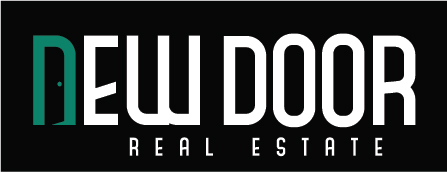Synovial Sarcoma Drug Pipeline Analysis Report 2024
Synovial Sarcoma Market Outlook
Synovial sarcoma is a rare cancer, representing about 5% to 10% of all soft tissue sarcomas. It predominantly affects adolescents and young adults, with roughly one-third of cases occurring in individuals under 30 years old. In the United States, the annual incidence rate is approximately 1.77 per million people. Synovial Sarcoma Drug Pipeline Analysis Due to its aggressive behaviour and rarity, synovial sarcoma poses significant treatment challenges, often leading to recurrence and requiring multiple therapy lines.
Get a Free Sample Report with a Table of Contents: https://www.expertmarketresearch.com/clinical-trials/synovial-sarcoma-drug-pipeline-analysis-report/requestsample
Synovial Sarcoma: Introduction
Synovial sarcoma is a rare and aggressive type of soft tissue cancer that typically forms near joints, tendons, or muscles. It often affects adolescents and young adults, with symptoms including swelling, pain, and reduced mobility in the affected area. Although its exact cause is unclear, chromosomal translocations play a key role in its development. Treatment options include surgery, chemotherapy, and radiotherapy, with emerging therapies such as targeted treatments and immunotherapy showing promise. Early detection and effective intervention are crucial for improving outcomes. Research is focused on innovative therapies to enhance survival rates and quality of life for patients.
Synovial Sarcoma Treatment Overview
Synovial sarcoma is a rare type of soft tissue cancer that typically occurs near joints and tendons. It is most diagnosed in adolescents and young adults. While its exact cause remains unclear, genetic mutations, particularly chromosomal translocations, play a significant role in its development. Early detection and timely intervention are crucial to improving prognosis.
Treatment for synovial sarcoma often involves a multimodal approach. Surgery is the primary method for tumor removal, frequently combined with radiotherapy to reduce recurrence. Chemotherapy is also employed, particularly in advanced stages. Emerging therapies, including targeted treatments and immunotherapy, are showing promise in enhancing survival rates.
Read Full Report with Table of Contents: https://www.expertmarketresearch.com/clinical-trials/synovial-sarcoma-drug-pipeline-analysis-report
Drug Pipeline Therapeutic Assessment
Analysis by Route of Administration
1. Oral
2. Topical
3. Others
Analysis by Phase
1. Preclinical Phase
2. Phase I
3. Phase II
4. Phase III
5. Phase IV
Analysis by Drug Class
1. Chemotherapy Agents
2. Targeted Therapy
3. Histone Deacetylase (HDAC) Inhibitors
4. Proteasome Inhibitors
5. Immunotherapy
6. Anti-Angiogenesis Agents
7. Monoclonal Antibodies
Synovial Sarcoma Drug Classes
Synovial sarcoma treatments utilise a range of drug classes, each designed to target specific pathways and mechanisms involved in cancer growth and survival. These diverse classes enhance the effectiveness of therapy and contribute to personalised treatment strategies. Understanding these drug classes is essential for optimising patient outcomes.
1. Chemotherapy Agents
Chemotherapy agents, such as doxorubicin and ifosfamide, are commonly used to treat synovial sarcoma by targeting and killing rapidly dividing cancer cells. These drugs are a mainstay of first-line therapy, particularly in advanced or metastatic cases, where they help reduce tumour size and control disease progression. Despite potential side effects, chemotherapy remains essential for aggressive disease management, often in combination with other treatments to maximise efficacy.
2. Targeted Therapy
Targeted therapies focus on specific molecules or pathways involved in the growth and survival of synovial sarcoma cells. These drugs offer a more precise approach by addressing genetic mutations or tumour-specific mechanisms, reducing toxicity compared to traditional chemotherapy. Ongoing research aims to refine these therapies, providing safer and more effective options for patients with advanced or resistant diseases.
3. Histone Deacetylase (HDAC) Inhibitors
HDAC inhibitors modulate gene expression by altering chromatin structure, effectively preventing cancer cell proliferation, and inducing cell death. These drugs are under investigation for synovial sarcoma, particularly in cases resistant to conventional therapies. By targeting epigenetic mechanisms, HDAC inhibitors represent a promising addition to treatment strategies, offering potential breakthroughs for managing this aggressive cancer type.
4. Proteasome Inhibitors
Proteasome inhibitors block the degradation of proteins critical for cancer cell survival, disrupting cellular processes and triggering apoptosis. These drugs are being explored as a novel approach for synovial sarcoma, especially in advanced stages. By targeting unique vulnerabilities in cancer cells, proteasome inhibitors may enhance treatment outcomes while complementing other therapeutic modalities.
5. Immunotherapy
Immunotherapy harnesses the body’s immune system to identify and destroy synovial sarcoma cells. Approaches such as immune checkpoint inhibitors and cancer vaccines are being developed to enhance immune responses. These therapies offer new hope for patients with advanced or refractory disease, focusing on improving survival and reducing the need for more invasive treatments.
6. Anti-Angiogenesis Agents
Anti-angiogenesis agents work by inhibiting the formation of blood vessels that supply nutrients to tumours. By cutting off the tumour’s blood supply, these drugs help slow or stop synovial sarcoma progression. Often used in combination with other treatments, anti-angiogenesis agents provide an additional strategy for managing advanced or aggressive cases.
7. Monoclonal Antibodies
Monoclonal antibodies are engineered to target specific proteins expressed on synovial sarcoma cells, enhancing immune responses or blocking tumour growth pathways. These therapies offer a highly targeted approach, reducing off-target effects and improving treatment outcomes. They are particularly valuable for patients with limited treatment options or resistant disease.
Synovial Sarcoma– Pipeline Drug Profiles
This section provides an overview of the various drugs used in the treatment of synovial sarcoma. It covers their classifications, mechanisms of action, and methods of administration, offering essential insights for effective treatment strategies.
1. Trabectedin
Trabectedin, derived from marine sources, disrupts DNA transcription in cancer cells, effectively reducing tumour growth. It is particularly effective for soft tissue sarcomas, including synovial sarcoma, and shows promise in advanced or metastatic stages. Trabectedin offers dual benefits by controlling disease progression and improving quality of life. Its potential for integration with other therapies makes it a valuable option in sarcoma management.
2. LV305
LV305 is an innovative immunotherapy designed to stimulate the immune system to target cancer cells expressing the NY-ESO-1 antigen, a marker commonly found in synovial sarcoma. Using a lentiviral vector, LV305 delivers tumour-specific antigens, activating T-cells to destroy cancer. This approach offers a targeted and minimally invasive option for patients with advanced synovial sarcoma, showing potential to improve long-term outcomes.
Synovial Sarcoma: Competitor Landscape
The key features of the report include patent analysis, clinical trials, grants analysis, funding and investment analysis, partnerships, and collaborations analysis by the leading key players. The major companies in the market are as follows:
Epizyme, Inc.
Epizyme, headquartered in Cambridge, Massachusetts, USA, is dedicated to developing targeted therapies for rare and aggressive cancers like synovial sarcoma. Their focus on histone methyltransferase inhibitors aims to disrupt cancer cell growth by regulating gene expression. Epizyme’s innovative approach provides hope for patients with limited treatment options, emphasising the need for precision medicine in managing rare malignancies.
Eli Lilly and Company
Eli Lilly, based in Indianapolis, Indiana, USA, focuses on advancing synovial sarcoma therapies through targeted treatments and immunotherapies. Their robust oncology pipeline addresses unmet needs, particularly in advanced and treatment-resistant cases. Eli Lilly’s commitment to innovation and patient-centric solutions highlights their dedication to improving survival rates and quality of life for those affected by this aggressive cancer.
Takara Bio Inc.
Takara Bio, headquartered in Shiga, Japan, specialises in innovative biotechnologies, including gene and cell therapies for rare cancers such as synovial sarcoma. Their research focuses on cancer immunotherapy and gene-modified treatments, offering cutting-edge solutions for patients with limited options. Takara Bio’s commitment to innovation reflects its dedication to improving outcomes for individuals with challenging cancer diagnoses.
Shenzhen BinDeBio Ltd.
Shenzhen BinDeBio, based in Shenzhen, China, is at the forefront of developing advanced monoclonal antibody therapies for rare cancers, including synovial sarcoma. Their innovative treatments aim to target cancer-specific proteins with high precision, reducing side effects and improving therapeutic efficacy. Shenzhen BinDeBio’s focus on expanding treatment options globally addresses critical gaps in sarcoma care.
GSK PLC
GSK, headquartered in Brentford, UK, is a global leader in oncology research, developing advanced therapies for synovial sarcoma. Their portfolio includes targeted treatments and immunotherapies designed to improve survival and quality of life. With a strong focus on innovation, GSK is committed to addressing the challenges posed by rare and aggressive cancers, positioning itself as a key player in sarcoma treatment advancements.
We at Expert Market Research always strive to provide you with the latest information. The numbers in the article are only indicative and may be different from the actual report.




